News
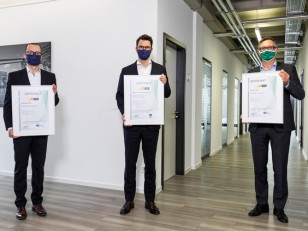
GLS Group successfully recertified
GLS Group's quality and environmental management system in Europe has been recertified for three more years under ISO 9001 and 14001. GDP certification, including a new seal for Spain, has been confirmed in five countries.
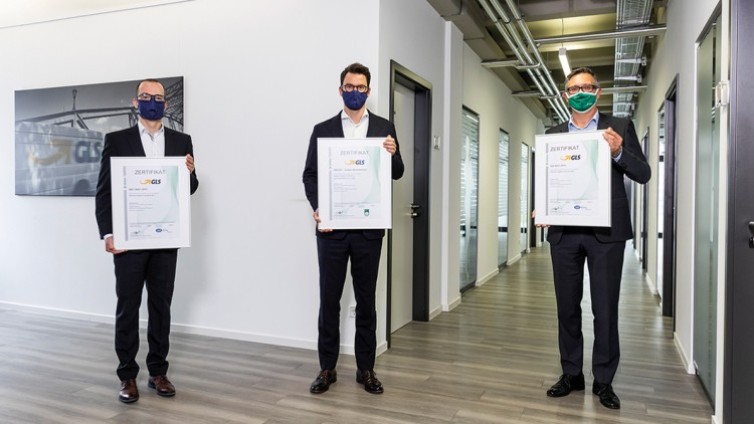
GLS Group successfully recertified
- Quality and environmental seal confirmed
- ISO 9001 und 14001 certificates in 18 countries
- GDP certification in six countries
- HACCP conformity in Germany
Amsterdam, 10. November 2020. The quality and environmental management system of the GLS Group has been recertified in Europe for another three years – in accordance with ISO 9001 and 14001. GDP certification has also been confirmed in five countries of the international parcel service provider, and a new GDP seal has been added for Spain.
The certificates confirm that the GLS Group aligns its actions daily with the high quality and environmental standards and continuously improves processes. Dr Karl Pfaff, Chairman of the Management Board of GLS Germany, received the certificates from Dr Rolf Krökel, Managing Director DEKRA Certificates GmbH, on behalf of the GLS Group on 30 October 2020.
For the GLS companies in Belgium, Denmark, Germany, France and Ireland the certificates according to Good Distribution Practice (GDP Guideline 2013/C 343/01) were successfully renewed. In Spain, GLS also fulfils the strict safety and hygiene requirements for the non-temperature-controlled transport of pharmaceuticals. GLS Spain received the GDP certificate at the end of May. This means that GLS now offers GDP-compliant services for the health and pharmaceutical industries in six countries. In Germany DEKRA simultaneously confirmed the effectiveness of GLS's HACCP concept
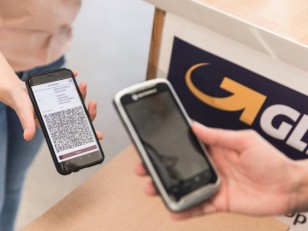
GLS extends international returns service
GLS expands international returns via GLS Parcel Shops to four more countries. The ShopReturnService offers flexible solutions for national and cross-border returns across Europe.

GLS extends international returns service
- Uncomplicated international returns shipment with the GLS ParcelShops
- Available across borders in thirteen countries
- Convenient returns management for private recipients
Amsterdam, 26. October 2020. The parcel service provider GLS expands the international returns shipment over the GLS ParcelShops by further four countries. With the ShopReturnService, GLS customers and their private recipients have a flexible returns solution for national and cross-border returns within Europe.
The ShopReturnService was previously available across borders for the countries Belgium, Denmark, Germany, Ireland, Luxembourg, Austria, the Netherlands, Hungary and Poland. From now on, GLS customers can book this service additionally for the countries Great Britain, Slovakia, Spain and the Czech Republic. By the end of the current calendar year, France, Finland and Slovenia will also be connected, so that full European coverage will be nearly achieved. The online portal, which was launched in July this year specifically for this service, can be individually configured and branded by GLS customers, as well as easily and comfortably linked to their own website by using an interface.
Useful also for the private recipient
Private recipients can easily generate their own return labels, then submit free of charge the returns to any GLS ParcelShop of their choice and easily and comfortably return items ordered abroad. GLS returns management is therefore fast and consumer-friendly.
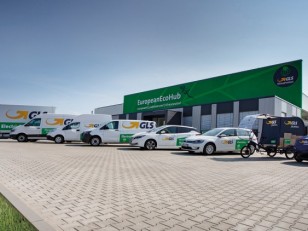
GLS opens EuropeanEcoHub in Essen
On 28 September, GLS connected the new EuropeanEcoHub in Essen. It handles 75,000 shipments daily. The sustainable hub aims for emission-free delivery.
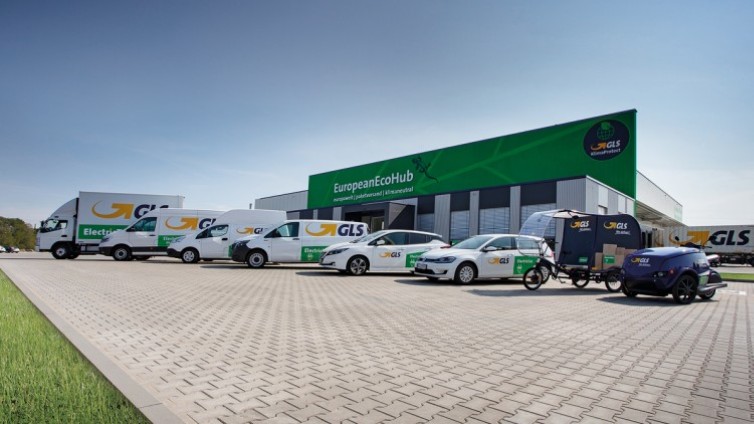
GLS opens EuropeanEcoHub in Essen
GLS opens EuropeanEcoHub in Essen
- European hub as a strategic pillar of the international network
- Focus on sustainability and climate neutrality, e.g. via self-sufficient power supply
- Building investments of around 15 million euros
- Extension of capacity to up to 200,000 parcels per day
- 250 to 300 new work places already at the start
Neuenstein, 29 September 2020. Yesterday GLS connected the new EuropeanEcoHub in Essen to the network – in the presence of Prof. Dr. Andreas Pinkwart, Minister for Economic Affairs, Innovation, Digitalisation and Energy of the Federal State of North Rhine-Westphalia. The Hub can currently handle up to 75,000 shipments per day. The operation is sustainable: the photovoltaic and battery storage system is already designed for predominantly self-sufficient parcel production and the delivery in Essen will be emission-free by the end of next year.
European hub, autarchic electricity supply, emission-free delivery and a biotope for species requiring protection: "This location sets completely new standards within the framework of our GLS KlimaProtect programme – especially with regard to sustainable operation," explains Dr. Karl Pfaff, Chairman of the Management Board of GLS Germany. "At the same time, Essen is an important pillar in the regional and international GLS network". The GLS building investment totals about 15 million euros. At the beginning 250 to 300 workplaces will be created in Essen – about 165 will be GLS employees and over 100 will be created via GLS transport partners.
Regional and international
Germany's second largest location is an important pillar for the expansion of capacity in the Ruhr region. In its European hub function, Essen also acts as an international gateway –especially between Germany and the Benelux countries. In the first construction phase, a handling hall of approximately 8,500 square metres was built on the 53,000 square metre site in Essen-Bergeborbeck. Thanks to the latest conveyor technology and over 155 gates for loading and unloading, up to 75,000 parcels can already be handled daily. In a second expansion stage, GLS will be able to handle up to 200,000 parcels per day from the 30 unloading, 95 loading and 210 delivery gates.
Sustainable and self-sufficient
"By creating increasingly closed resource cycles for electricity, water and air, we have achieved three innovative milestones in the operation of a sustainable logistics location that go far beyond our previous environmental solutions," adds Gero Liebig, GLS Region Manager West.
The three innovative milestones in concrete terms:
- There are 880 high performance photovoltaic modules installed on the roof of the hall, which produce an output of 300 KWp or 286 MWh per year. A battery storage in a 20-foot container ensures depot operation and the supply of the charging infrastructure for e-vehicles even without sunlight. The system is already designed to operate the parcel production facility 160 days a year independently of the Essen power suppliers.
- In addition to covering the internal water consumption, the rainwater utilisation system has other ecologically valuable applications like supplying the 1,800 square meter green roof and, in particular, ensuring consistent water levels in the newt ponds.
- The same applies to our proven heat pump technology, which can now use "green electricity" to cool down the air in the halls by up to 4 degrees in a climate-neutral manner during the increasingly hot summer months to improve working conditions.
"Our European-wide parcel service should not only be of high quality, but also sustainable. That is why we are constantly testing and implementing new resource-saving and climate-neutral solutions throughout Europe," says Dr. Karl Pfaff. "The new EuropeanEcoHub in Essen therefore has a model character for the entire Group".
By the end of next year, GLS will have over 20 electric vehicles in use in Essen. In addition, charging points are available for the vehicles of employees, transport partners and their delivery drivers and visitors.
Biodiversity and protection of species
There is also a large biotope on the area: on 4,875 square metres of land, GLS sustainably operates professionally designed pond facilities and various land habitats for six species of newts, toads and frogs requiring protection. The 3,500 animals were collected by experts over several months before construction work began and have now found their new, ideal habitat, safely separated from the operating area by special fencing.